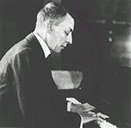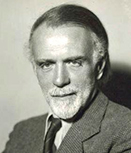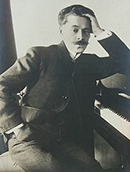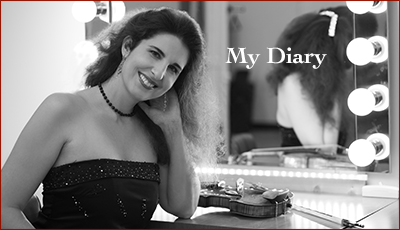Dear Readers,
My upcoming concert in Montreal, Canada, will take place on February the 21st in a musical program dedicated to chamber music featuring composers from Russia and Hungary ! I’ll be performing with my colleagues, pianist Paul Stewart and cellist Elizabeth Dolin.

The Trio Elégiaque no. 1 in G minor by Russian composer Sergei Rachmaninov (1873-1943) will open the evening. The work was written by the young nineteen-year-old Rachmaninov. He wrote his second Elegiac trio in October 1893, just after Tchaïkowsky’s death. Unlike most chamber music works, the Trio Elégiaque in G minor was written in one movement. The piano is opening the trio with the elegiac theme in the first part Lento Lugubre, softly accompanied by the strings, reminding us of his famous piano concerti. Later, violin and cello are dialoging on this gorgeous theme, while the intensity is progressively growing until the Appassionato segment. The thematic motif is ending the work as a funeral march (Alla marcia funebre).
Interesting : played backwards, the four notes of the first theme of the work remind us of the opening of Tchaïkowsky’s first piano concerto…in a minor key !
Rachmaninov was a student of Anton Arensky at the Moscow Conservatory. Arensky’s Piano Trio Op. 32 will end this concert !

The second work on the program is the Duo Op. 7 for violin and cello by Hungarian composer Zoltan Kodály, which I’ll be playing with cellist Elizabeth Dolin.
The Duo was composed in 1914 and was premiered only four years later, in 1918. Most of his chamber music works were composed during the first World War. Kodály (1882-1967) was extremely involved in the musical activities of his native country, and highly contributed in areas such as music history, educational language, linguistics and history of literature. Kodály and Bela Bartok are both considered as Hungary’s greatest Twentieth Century composers. Like his colleague and friend Bartok, Kodály’s work was very inspired by authentic folk music reflecting centuries of traditions and history. The Duo for violin and cello has a very specific character based on folk music rhythmic patterns, melodic figures influenced by Magyar folk music (gypsy music).
“To write a folksong is as much beyond the bounds of possibility as to write a proverb. Proverbs condense centuries of popular wisdom and observation. In traditional songs, the emotions of centuries are immortalized in a form polished to perfection.” (Zoltan Kodály, 1941)
Kodály devoted a considerable part of his life to music education in his country. He was the father of The Kodály Method, a concept of music education that he developed, and which became internationally known and applied in various schools.
“Music education is necessary for the development of the total person (music should be at the core of the curriculum – affective, cognitive, psychomotor).” (Zoltan Kodály)
Mrs. Dolin and myself are planning a concert tour in Ontario and Quebec, Canada, during the fall 2013, in a program involving only violin and cello instruments, including Kodály’s Duo and Maurice Ravel’s Sonata for violin and cello.

Back to Russia, the concert will end on Anton Arensky’s Piano Trio No. 1 in D minor, Op. 32. Arensky (1861-1906) was born in Novgorod, Russia.
Arensky’s magnificent chamber music works include two piano trios, a piano quintet and two string quartets. Like many young composers of his time, including Rachmaninov, Arensky was strongly influenced by Tchaïkowsky’s music to such an extent that his work was hardly considered for a long while. The general impression was that Arensky was a composer lacking personal style. Nowadays, Arensky’s works are regularly performed and recorded.
Very young, Anton Arensky demonstrated exceptional musical abilities. He studied under Nikolai Rimsky-Korsakov at the Saint-Petersburg Conservatory and became a professor at the Moscow Conservatory. After retiring from his position as music director of the Imperial Choir in Saint-Petersburg, he devoted his life to composition, to piano and to conducting.
His superb Piano Trio in D minor Op. 32 was dedicated to Russian cellist and composer, Karl Davydov.
 Note : The Antarctic Arensky Glacier was named after composer Anton Arensky.
Note : The Antarctic Arensky Glacier was named after composer Anton Arensky.
[gdlr_space height=”20px”]
Program notes by Laurence Kayaleh
Thursday, February the 21st, 2013 at 8:00pm
Chapelle Historique du Bon Pasteur, Montreal, QC, Canada (General information : (514) 872.5338)
Concert of the Reiner Trio
Laurence Kayaleh, violin
Elizabeth Dolin, cello
Paul Stewart, piano
[gdlr_space height=”20px”]
[gdlr_button href=”https://lkayaleh.kayaleh.com/event/” target=”_self” size=”medium” background=”#4fbed6″ color=”#ffffff” with_border=”yes” border_color=”#368799″]See Events[/gdlr_button]
